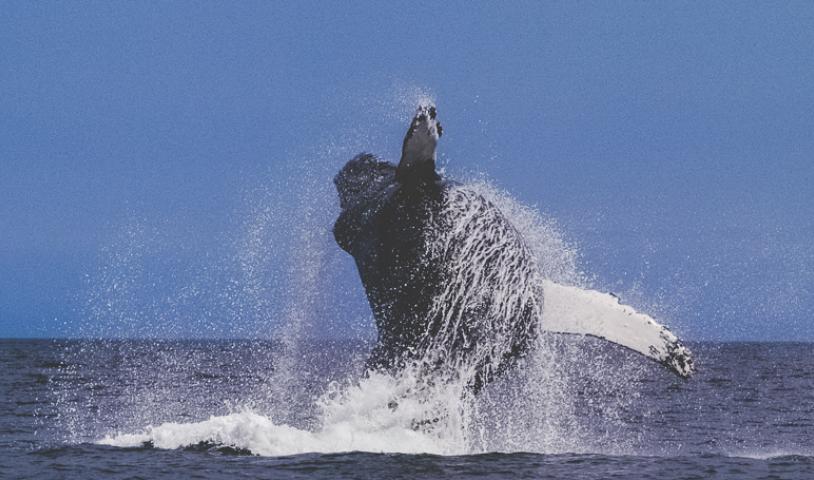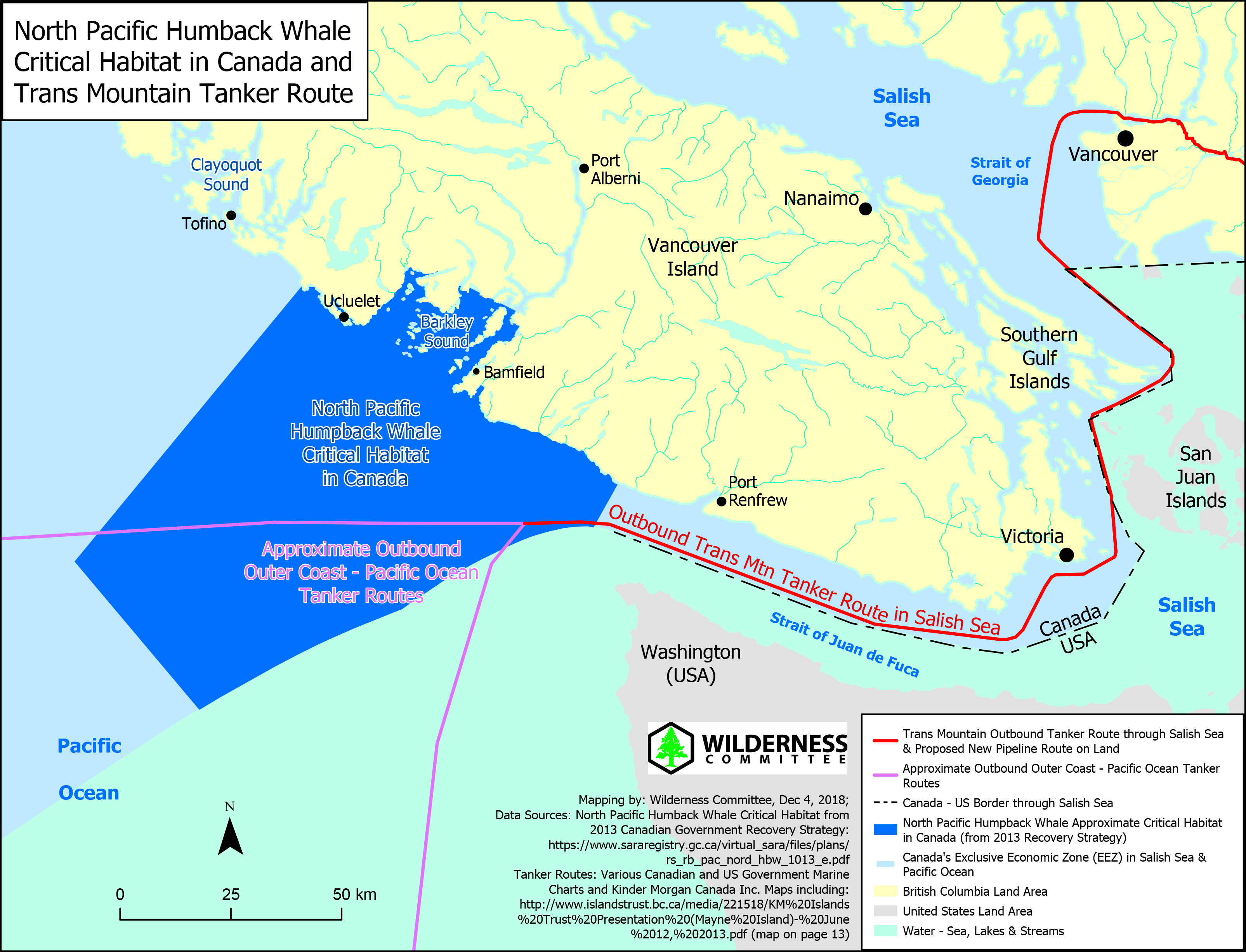The impacts of Trans Mountain on endangered marine species
Thursday, December 6, 2018
Our report to the National Energy Board on the impacts TMX would have on marine species at risk
Killer whales aren't the only ones threatened by the Trans Mountain expansion project (TMX).
There are 27 federally listed species at risk along the TMX tanker route. The impacts of TMX on the survival and recovery of these species at risk must be taken into consideration. It’s not just southern resident killer whales whose fate is tied to this project.
The humpback whale’s tale is one that is generally hopeful. With numbers increasing in BC waters, they could be the recovery story we desperately need. That is of course, only if their habitat remains healthy and able to support them.
The looming fate of TMX could be the derailment from recovery to extirpation for humpback whales in BC. Their critical habitat overlaps directly with the TMX tanker route. From acoustic noise pollution, collisions with vessels and the risk of a catastrophic diluted bitumen spill, there are many reasons this project doesn’t belong in the biodiverse marine ecosystem.

Our report argues TMX will likely cause significant harm to humpback whales, blue whales, fin whales, short-tailed albatross and pink-footed shearwater. Furthermore, this project will negatively impact the ability to meet recovery objectives laid out in the recovery strategy for the sei whale. This project and its associated risks threaten the survival and/or recovery of these six federally listed marine species at risk. We’ve told the board we’re completely against the approval of the TMX project.
We only had time to assess the impacts of the TMX to six species at risk (the National Energy Board gave us only a little over a month to complete the research). But there are more species at risk along the route who stand to lose if this project goes through.
Thirty two federally listed species at risk live and frequent the waters along the TMX tanker route. The Department of Fisheries and Oceans (DFO) is responsible for mapping their critical habitat so that proper protections can apply. Yet, DFO has failed to map 27 of the species at risk critical habitat. This failure to map critical habitat should not result in species at risk being overlooked and forgotten.
Environmental assessments on the impacts of all federally listed species at risk must be conducted. The leatherback sea turtle, basking shark, bluntnose sixgill, green sturgeon, grey whale, harbour porpoise, long-billed curlew, longspine thornyhead, marbled murrelet, North Pacific right whale, northern abalone, rougheye rockfish type I and type II, sea otter, Steller sea lion, tope, and yelloweye rockfish are just some of the species at risk that may be impacted by the Trans Mountain pipeline expansion.





